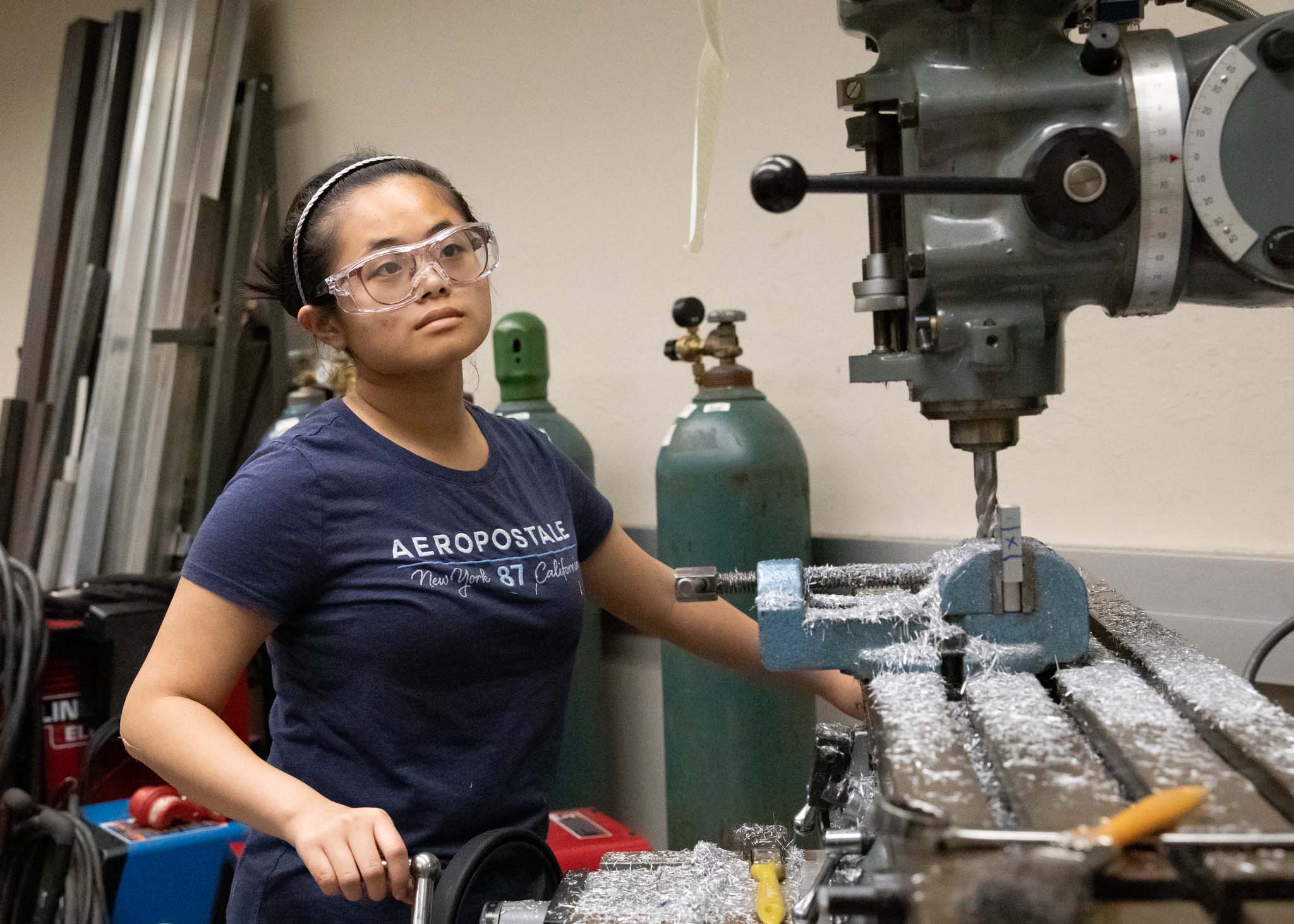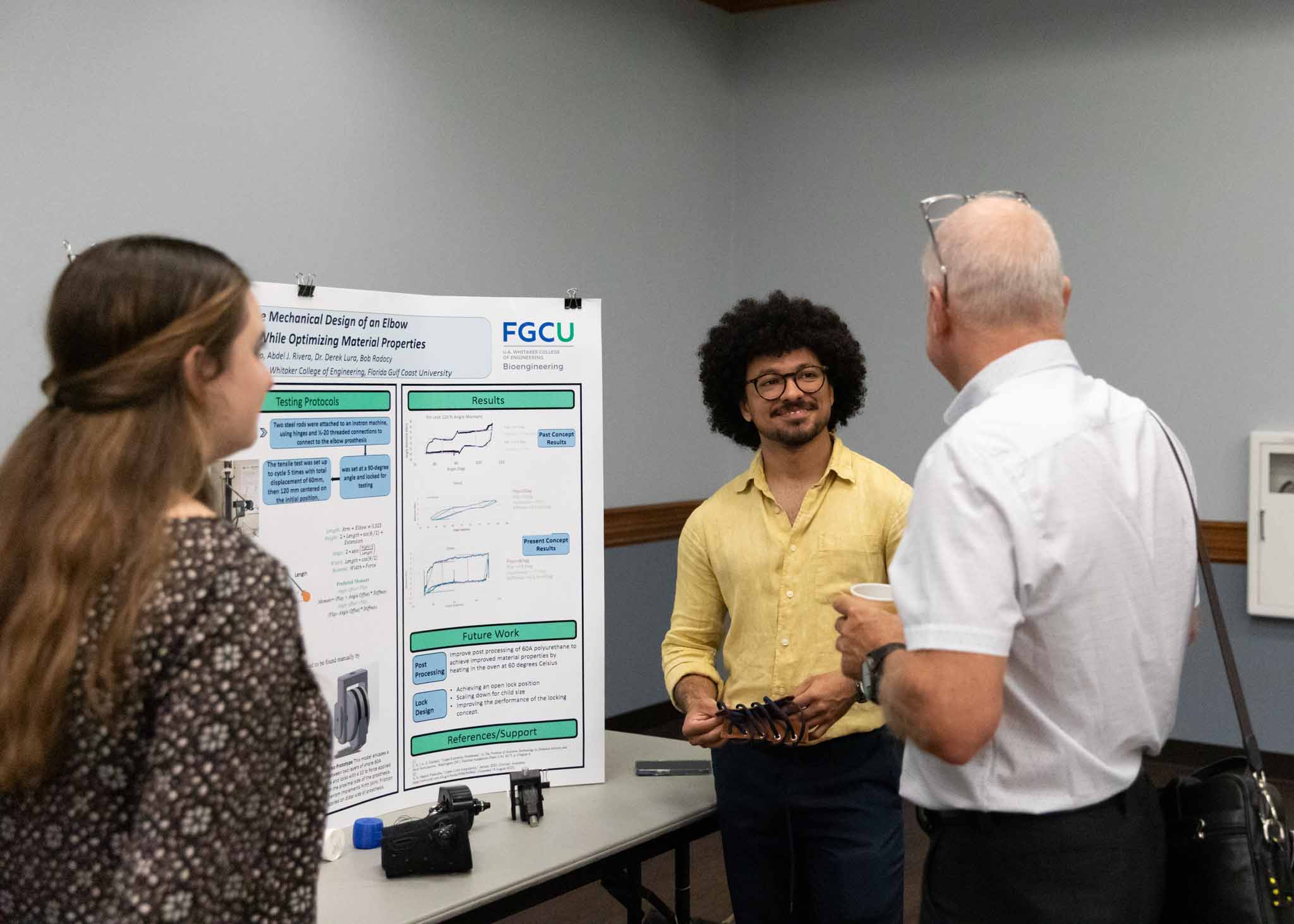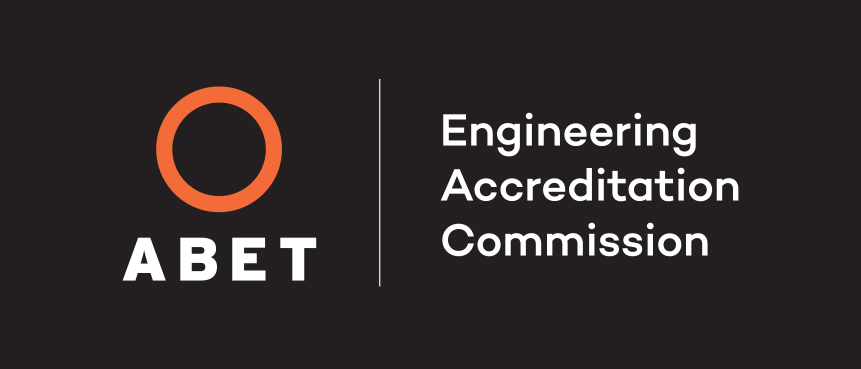Bioengineering (BS)
The Bachelor of Science in Bioengineering at Florida Gulf Coast University emphasizes the application of new technology to biomaterials, biomechanics, and biomedical tools and procedures.

As a bioengineering student, you'll learn how to solve problems associated with interactions between living and non-living materials and systems. Our program features a high-quality education in engineering, life sciences and physical sciences, preparing you for careers in a variety of environments. Outside of the classroom, there are many opportunities for you to gain additional experience to complement your education, whether it's by completing an internship, working on a hands-on senior design project, or being involved with the student chapter of Biomedical Engineering Society (BMES).
After graduation, our students seek careers in a variety of areas, including medical device & biotechnology, healthcare, and government. You'll be prepared for advanced degrees in cutting-edge areas such as cell and tissue engineering and advanced medical imaging technologies. The program is also an excellent stepping-stone for entry into schools and careers focused in areas such as medicine and law. With the addition of a 4-credit general biology course, you'll meet the prerequisite requirements of most medical schools.

Bioengineering Facilities
Pictured below are a few of the spaces that Bioengineering students frequent.
Arthrex Biomechatronix Research Lab
The Arthrex Biomechatronix Research Lab is used for biomechanics as well as mechanical, prosthetics, and assistive devices research and development projects. The primary equipment in this lab includes an 8-camera Qualisys motion capture system with AMTI force plates that are able to record the position of passive reflective markers in the room in 3D to an accuracy of approximately 1mm. There are 3D printers and CNC engraving machines in the lab, which are used for fabrication of both class and research project prototypes.
Holmes Hall 339
This is the main bioengineering classroom for junior and senior courses with a capacity for 48 students. It is designed for class lectures as well as lab practices in accordance to the lecture-lab approach of the bioengineering department. Laboratory practices are carried out in the room for the human physiology courses, the courses of the electrical sequence, and the biomaterials courses. Equipment available for the lab practices includes 16 electrical equipment stations, each having power supply, function generator, oscilloscope, and National Instruments ELVIS II system. Equipment also includes 12 Fluke vital sign patient simulators, 12 NI portable data acquisition units, and 16 iWorx sets for acquisition and analysis of physiological signals/parameters. Additional equipment includes Arduino programming kits, multimeters, breadboards, and various electrical and electronic components.
-
Accreditation
Toggle More Info -
Admissions Information
Toggle More Info -
Program Requirements
Toggle More Info -
Degree Map
Toggle More Info -
Course Description
Toggle More Info -
Course Schedule
Toggle More Info -
Educational Objectives and Student Outcomes
Toggle More Info -
Learning Outcomes
Toggle More Info -
Tuition, Fees, and Financial Assistance
Toggle More Info


